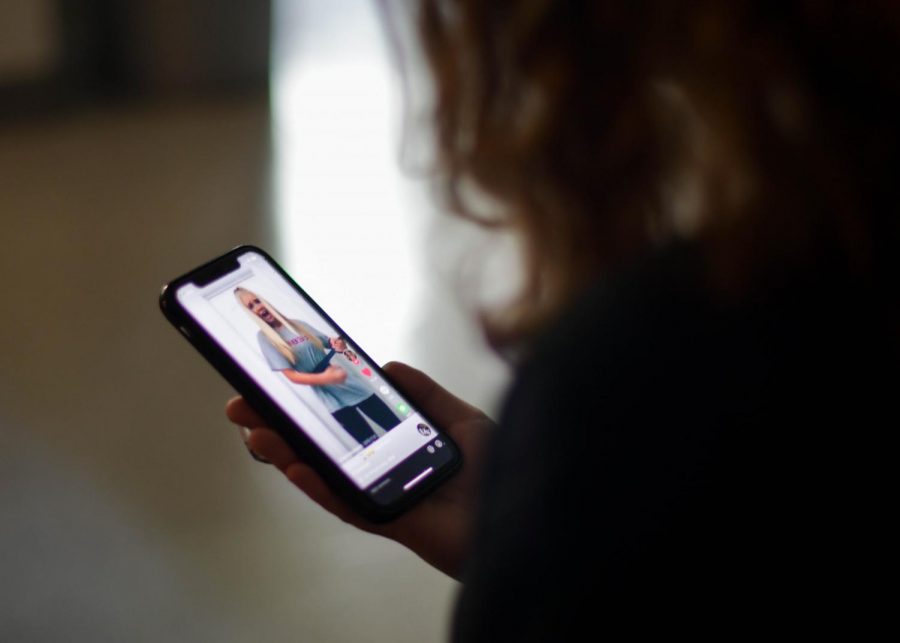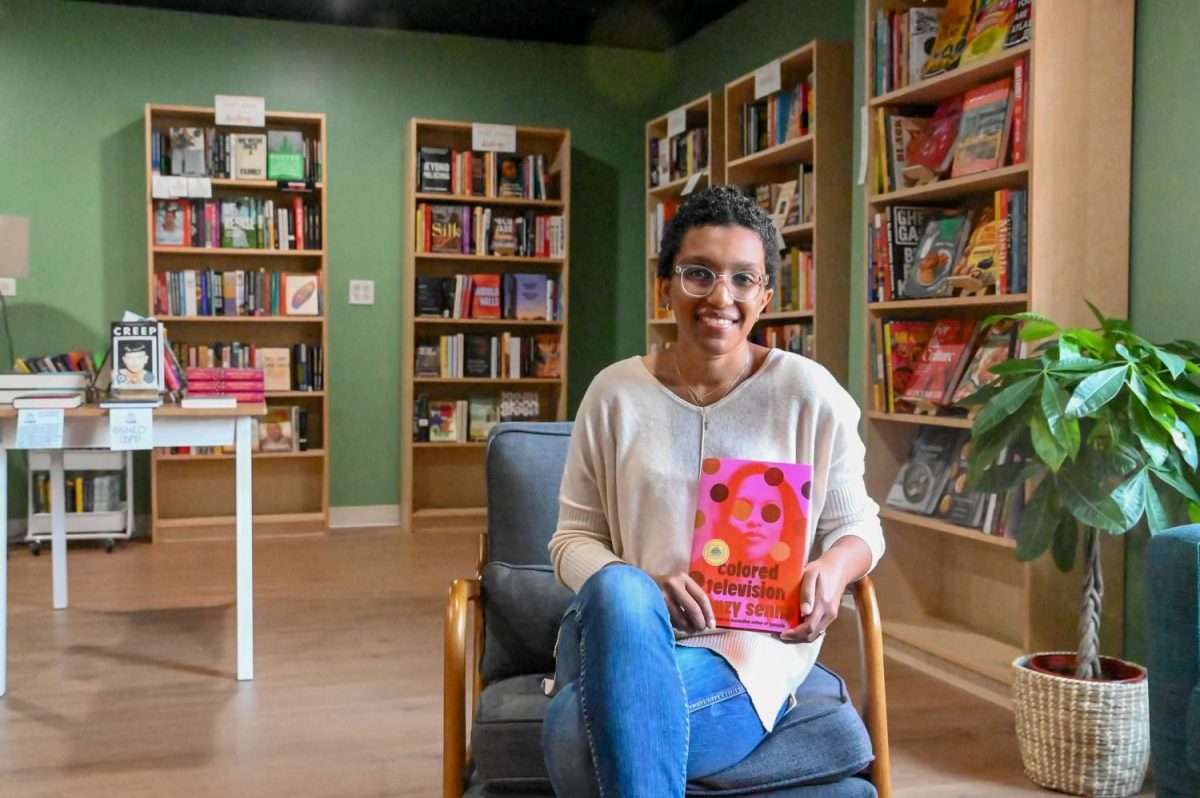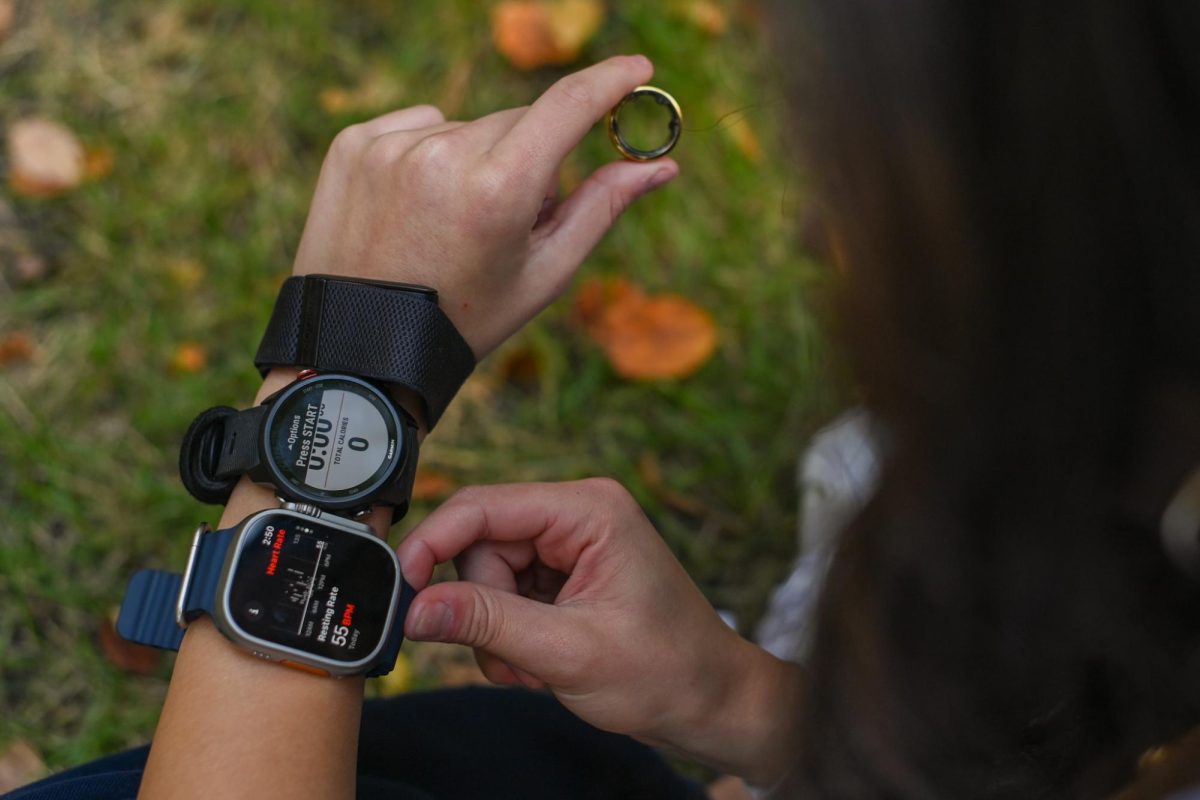Social media apps increase body dysmorphia
Social media trends like the “wear it big” challenge reinforce the idea that only certain body proportions are beautiful or acceptable.
November 10, 2021
A trove of leaked internal Facebook documents exposed a frightening truth: Facebook has knowingly fostered an environment on its social media platforms that actively harms teenagers. One leaked presentation from Facebook’s internal message board said that according to internal research, 32% of teen girls believe Instagram has exacerbated their negative body image. Other social media sites are also known to glorify and encourage the development of eating disorders and body insecurity in teens. TikTok, YouTube, Twitter and Snapchat have all been linked to increased body dysmorphia and glorification of unhealthy behaviors in teens.
Many students feel the harm illustrated by this leaked information in their everyday lives. The U-High students who exemplify the impact of social media on teenage body image suffer invisibly.
One U-High ninth grader, whose name has been withheld, admits that she has suffered from her social media usage. After moving to distance learning, Ninth Grader A started watching hours of TikTok a day. In 2020, she ended up calling a support line multiple times and eventually began treatment for anorexia nervosa. Looking back on her experience, Ninth Grader A believes TikTok heavily contributed to her health issues.
“I’ve been unhappy with the way I looked for a long time, but at some point, when school went online, I started just hating my body and physically damaging myself in order to feel prettier,” Ninth Grader A said. “When you can’t leave your house, the only people you see are the people on your ‘For You’ page and your own reflection. Compared to the girls I spent all day watching on TikTok, I’m worthless.”
A U-High junior, whose name has been withheld, said Instagram makes her feel different from her peers. She feels alone in her inability to meet “expectations.”
“I mean, yes, I follow people like Kim Kardashian and Addison Rae, who I know have unrealistic edited proportions, but even my Lab friends who I follow always look so perfect in their posts,” Junior A said. “I’ve worked so hard trying to look like that but I just can’t.”
Ninth Grader A and Junior A are both undergoing treatment for diagnosed eating disorders. They both expressed that the effects of their health issues follow them to school and impact every aspect of their lives.
Eating disorders can cause severe symptoms such as stomach pain, increased risk of heart failure, brain fog and stunted physical and neurological development. Extreme cases can result in life threatening conditions and permanently altered brain chemistry. Even small manifestations of an eating disorder often lead to decreased academic performance and mental health concerns like anxiety disorder and depression.
Some students have been able to open up to parents or doctors and get help. However, the process of seeking help can be difficult, and treatment itself can be taxing and slow.
“I don’t think that I’m fragile or anything, but, I mean, even months though the recovery process, I’ll randomly see something that just really triggers me,” Junior A said. “At the start of the school year, I had to go home for the day just because I saw two students filming one of those ‘wear it big’ TikToks where a girl wears a really big shirt and then pulls it tight against her stomach. I know that I’m doing better, but stuff like that makes me doubt the whole recovery process.”
Counselors encourage students to reach out if they are struggling to communicate important concerns to their parents or other mentors. Counselor Teddy Stripling said the counselors are aware of how serious body image issues can be and have tried to create an accessible support system.
“A lot of students are concerned that we are going to tell their parents or teachers about their concerns, but, as long as a student is not in immediate harm, our conversations are completely confidential,” Mr. Stripling said. “Students need to know that they are welcome.”
Students suffering from body image issues or eating disorders don’t have to suffer alone. The NEDA Helpline is a free advice line that offers support, resources and treatment options.













Thomas O'Connor • Nov 10, 2021 at 8:32 pm
Great job Clare. Keep up the good work!